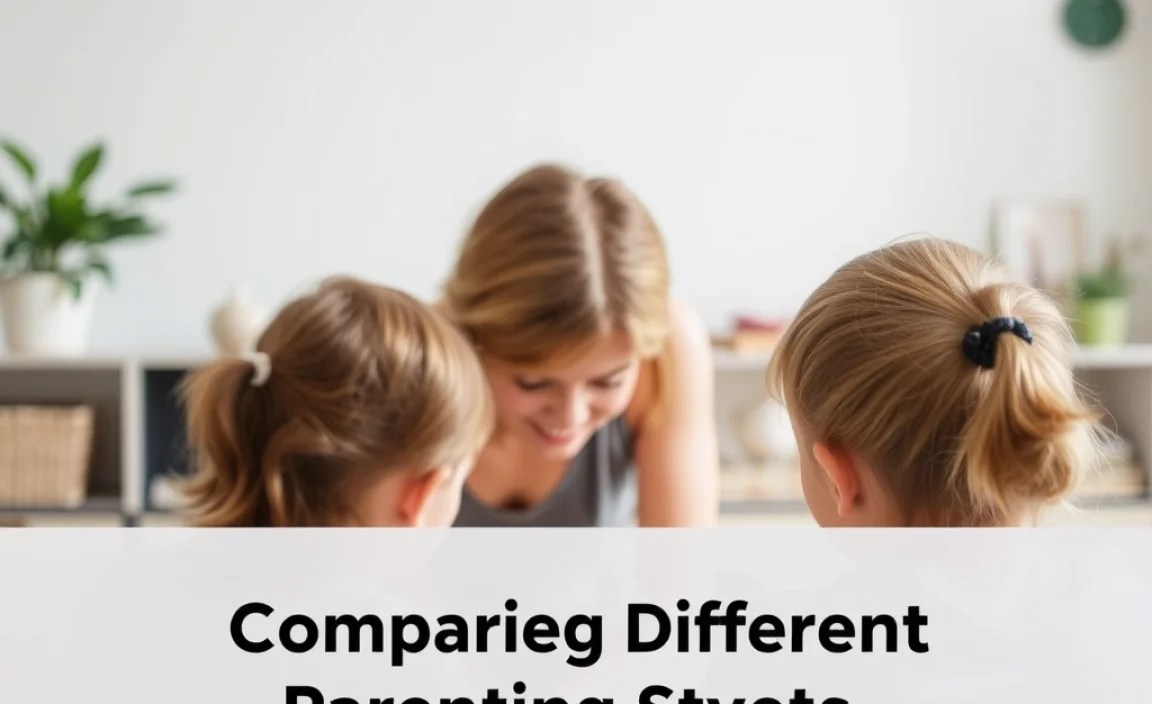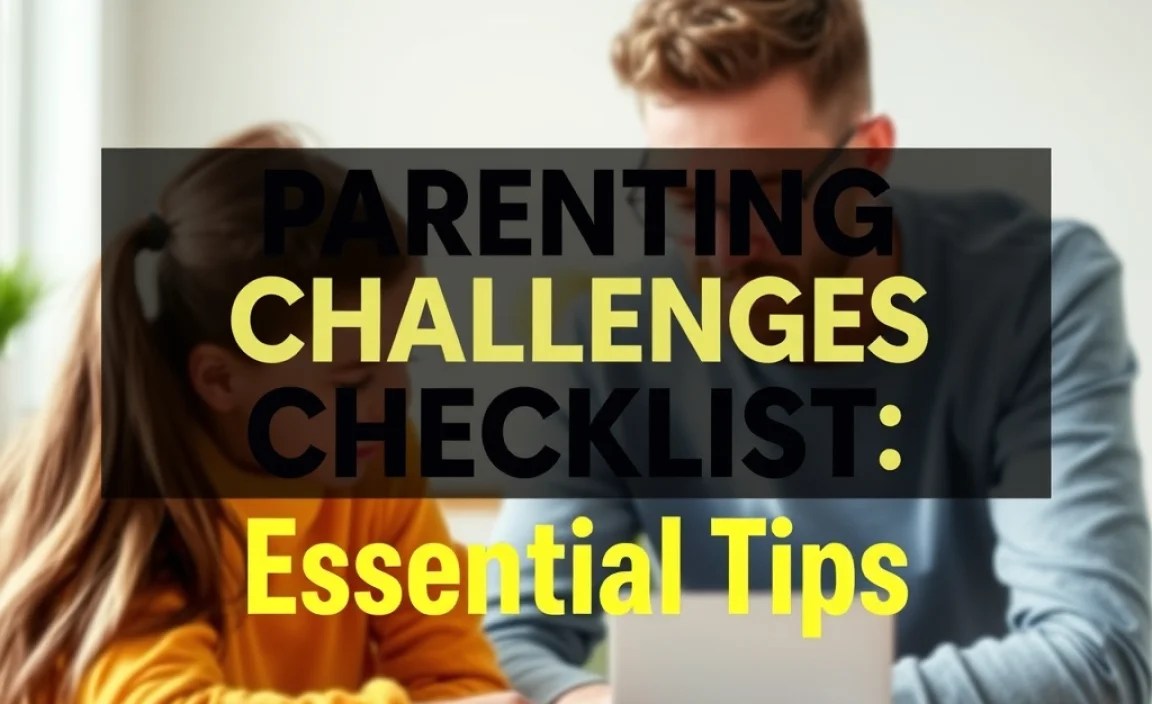Have you ever seen a parent hovering over their child like a helicopter? This type of parenting is called helicopter parenting. It can affect children in many ways. Imagine a parent who checks every homework page. Or a parent who always steps in to solve problems. What happens to kids in these situations? Let’s explore the effects of helicopter parenting together.
At A Glance
Key Takeaways
- Helicopter parenting can make kids less independent.
- Children may feel more anxious under constant supervision.
- Overprotected kids might struggle with decision-making.
- Helicopter parenting effects can lower self-esteem.
- Kids might not learn to handle failure well.
Understanding Helicopter Parenting Effects

Helicopter parenting means parents are overly involved in their children’s lives. They watch every move and step in quickly. This can stop kids from learning on their own. Imagine never getting the space to try new things. How would you grow and learn? Helicopter parenting can make children feel dependent. They might not learn to solve problems independently.
- Limits kids’ freedom to explore.
- Creates fear of making mistakes.
- Stops kids from gaining confidence.
- Interferes with natural learning.
- Can cause stress and anxiety.
- Leads to lack of problem-solving skills.
Parents often mean well. They want their kids to succeed and stay safe. However, too much control can backfire. It can make children feel they can’t handle things alone. They become reliant on their parents for every decision. This keeps them from developing skills needed in adulthood.
Fun Fact or Stats : Studies show kids with helicopter parents often feel more anxious and stressed.
The Origins Of Helicopter Parenting
Where did helicopter parenting come from? It is believed to have started in the 1980s. Parents wanted to protect their kids more. They worried about safety and competition in school. So, they became more involved in their children’s lives. Imagine mom or dad watching you at every step. Does it make you feel safe or stressed? This style of parenting has grown over the years.
Why Some Parents Hover
Why do parents become helicopter parents? Many parents think they are helping. They want their kids to succeed and be happy. They fear their child might fail without their help. But is this the best way? Constant help can stop kids from learning important skills. It might even make them feel like they can’t do things on their own.
How Kids React To Helicopter Parenting
Kids react differently to helicopter parenting. Some kids might like the attention. Others might feel stressed. Imagine always having someone check your school bag. Would you feel trusted? Many kids feel they can’t make decisions alone. They might struggle with confidence because of this constant hovering.
Why Independence Matters For Kids

Independence is important for kids. It helps them learn and grow. When kids do things on their own, they gain confidence. They learn from mistakes and get better. Imagine riding a bike without training wheels. It’s scary but exciting. Independence teaches kids resilience. They learn to try and try again.
- Encourages self-reliance.
- Helps build confidence.
- Teaches problem-solving.
- Fosters resilience and grit.
- Promotes creativity and curiosity.
When kids are independent, they find their strengths. They think creatively and solve problems. They learn to adapt to changes. These skills are useful throughout life. Parents can guide, but giving kids space is crucial. Independence allows kids to spread their wings.
Fun Fact or Stats : Kids who solve problems on their own often feel more capable and confident.
Ways To Encourage Independence
How can parents encourage independence? Let kids make choices. Start with small things, like picking clothes. Encourage problem-solving by asking questions. Show them how to do tasks, then step back. Watch them grow and learn. Isn’t it amazing to see someone solve a puzzle on their own? Create a safe space for mistakes. Kids learn best when they try and try again.
The Role Of Parents In Independence
Parents play a big role in encouraging independence. They guide, support, and cheer for their kids. But they also need to step back. It’s like teaching someone to swim. You can hold them at first, then let them splash around. Does stepping back mean you don’t care? No, it means you trust them to learn. Trust is key to fostering independence.
Challenges In Building Independence
Building independence isn’t always easy. Kids might resist making decisions. They might fear mistakes. Parents might worry about safety. But challenges are part of growth. Imagine a caterpillar becoming a butterfly. It takes time and effort. Parents can help by being patient. Encourage kids to face challenges and learn from them.
Exploring Emotional Effects On Kids

Helicopter parenting can affect kids’ emotions. It might make them anxious. They might fear making mistakes. Constant supervision can lower their self-esteem. Kids may feel they’re not trusted. This can lead to frustration and stress. Imagine feeling watched all the time. Would you feel relaxed?
- May cause anxiety and stress.
- Can lower self-esteem.
- Makes kids feel untrusted.
- Can lead to emotional dependency.
- Might cause frustration and anger.
When kids feel anxious, they may avoid new experiences. They might not take risks or try new things. This limits their growth. Parents can help by reducing pressure. They can provide a safe space for expressing feelings. This supports emotional well-being.
Fun Fact or Stats : Kids with autonomy report higher happiness levels.
Building Self-Esteem In Kids
How can parents build kids’ self-esteem? Praise their efforts, not just results. Encourage them to try new things. Make them feel valued and loved. Imagine climbing a mountain and reaching the top. Feels amazing, right? Celebrate small victories. This boosts confidence and self-worth. Allow kids to make decisions and learn from them.
Dealing With Anxiety And Stress
How can kids deal with anxiety and stress? Deep breathing helps. Encourage open communication. Let them share their fears. Remind them it’s okay to make mistakes. Parents can teach calming techniques. Imagine being a tree swaying in the wind. Strong and flexible. Kids can learn to handle stress with practice.
Fostering Trust Between Parents And Kids
Trust is important between parents and kids. It’s built through communication and respect. Listen to kids’ thoughts and feelings. Give them space to share. Show them you believe in their abilities. Trusting kids helps them trust themselves. Imagine a tightrope walker with a safety net. Trust is that net, allowing them to step forward.
Comparing Different Parenting Styles

There are many parenting styles. Each affects kids differently. Helicopter parenting is one style. But how does it compare to others? Let’s look at a few. Some parents are more relaxed. They give kids freedom to explore. Others are more strict. They set clear rules and boundaries. Each style has its pros and cons. How do these styles shape a child’s future?
| Parenting Style | Freedom | Rules | Independence |
|---|---|---|---|
| Helicopter | Low | High | Low |
| Free-range | High | Low | High |
| Authoritative | Medium | Medium | Medium |
| Permissive | High | Low | Medium |
- Different styles affect kids uniquely.
- Free-range allows more independence.
- Helicopter involves close supervision.
- Authoritative is balanced with rules and freedom.
- Permissive offers freedom but less structure.
Each parenting style has its benefits and challenges. Some kids thrive with clear rules. Others blossom with freedom to explore. Finding the right balance is key. Parents can mix styles to suit their child’s needs. The goal is to nurture happy, healthy, and independent children.
Fun Fact or Stats : Studies show kids thrive in balanced parenting environments.
The Impact Of Free-range Parenting
Free-range parenting is about giving kids freedom. Parents trust kids to explore. They learn from real-life experiences. Imagine a playground without fences. Isn’t it exciting? Kids learn to navigate the world. They make choices and face challenges. This builds resilience. Free-range parenting encourages independence and self-reliance.
Finding Balance In Parenting
Finding balance in parenting is important. Too much control can stifle growth. Too little guidance may lead to confusion. Parents can adjust their approach as kids grow. Imagine tuning a guitar. Finding the right note makes all the difference. Balance helps kids feel supported yet free. It fosters a healthy family environment.
Parenting Styles And Child Development
Parenting styles affect child development. Each style influences behavior, emotions, and skills. Kids from authoritative homes tend to be confident. Those from permissive homes may lack boundaries. What about helicopter kids? They may struggle with independence. Understanding these effects helps parents make informed choices. It’s like picking the right path on a journey. Each step shapes the destination.
Conclusion
Helicopter parenting effects are important to understand. This style can limit independence. It may cause anxiety and lower self-esteem. Parents can encourage growth by stepping back. Giving space allows kids to learn and flourish. Striking a balance in parenting supports healthy development.
FAQs
Question: What is helicopter parenting?
Answer: Helicopter parenting is when parents are overly involved in their children’s lives. They monitor and control many aspects. This can stop kids from learning independence and problem-solving skills.
Question: How does helicopter parenting affect kids?
Answer: Helicopter parenting effects include less independence and higher anxiety. Kids might struggle with decision-making and have lower self-esteem. They may also feel untrusted and become emotionally dependent on parents.
Question: Why do parents become helicopter parents?
Answer: Many parents become helicopter parents because they want to protect their kids. They aim to ensure success and safety. However, too much control can hinder children’s growth and learning.
Question: Can helicopter parenting lead to stress?
Answer: Yes, helicopter parenting can lead to stress in children. Constant supervision and pressure to succeed can make them anxious. Kids may struggle to handle stress and avoid challenges.
Question: How can parents encourage independence?
Answer: Parents can encourage independence by letting kids make choices. They should guide but not control every aspect. Creating a safe space for mistakes helps children learn and grow.
Question: What are some alternatives to helicopter parenting?
Answer: Alternatives to helicopter parenting include free-range and authoritative styles. Free-range allows more freedom while authoritative balances rules and independence. Both styles help nurture independent, confident kids.

